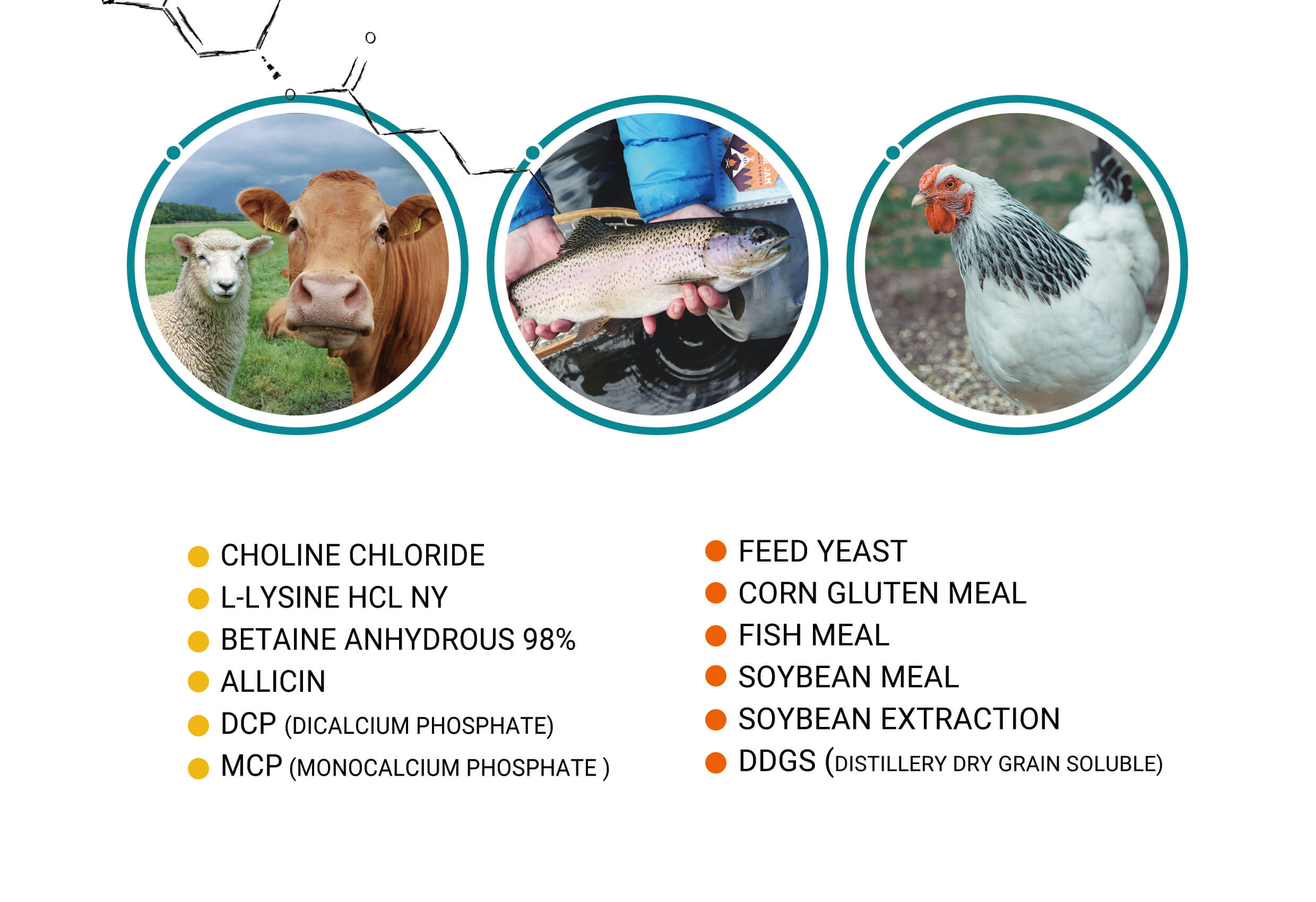
As a swine producer, you know that proper nutrition is crucial for your pigs' growth, health, and productivity. Feed additives can play a vital role in achieving the best results.
Swine feed additives can be classified into four categories:
Nutritional Feed Additives
Zootechnical Feed Additives
Technological Feed Additives
Sensory Feed Additives
Nutritional feed additives aim to supplement essential nutrients that may be lacking in the animal's diet or enhance their absorption. Vitamins, minerals, and amino acids are commonly added to swine diets to support growth, metabolism, and immune function.
Vitamins are organic compounds vital in many physiological functions, including immunity, growth, and reproduction. Since swine cannot synthesize them, vitamins must be supplied through the diet. Common vitamins added to swine diets include A, D, E, K, and B-complex.
Minerals are inorganic compounds crucial for various body functions, such as bone formation, nerve and muscle function, and enzyme activation. Since pigs may not get enough minerals from their natural diet, they must be supplemented. Common minerals added to swine diets include calcium, phosphorus, magnesium, sodium, and trace minerals such as zinc, copper, and iron.
Amino acids are the building blocks of proteins and are essential for growth, repair, and metabolism. Some amino acids are essential, meaning that swine cannot synthesize them and must be supplied through the diet. Commonly added amino acids in swine diets include lysine, methionine, threonine, and tryptophan.
Zootechnical feed additives are used in swine production to improve animal performance by promoting growth rate, feed conversion, and overall health status. These additives enhance gut health and immune function or mitigate the negative effects of stress.
Probiotics are live microorganisms that provide health benefits when administered in adequate amounts. They promote the growth of beneficial bacteria in the gut, leading to better nutrient absorption and immune function. Common probiotics added to swine diets include Lactobacillus, Bifidobacterium, and Enterococcus.
Probiotics benefit swine production as they improve gut health and immune function. They prevent the growth of harmful bacteria in the gut and promote the growth of beneficial bacteria, resulting in better nutrient absorption, improved digestion, and a reduced incidence of gut-related diseases. Probiotics also help to reduce the use of antibiotics in swine production by creating a healthy balance of microflora in the gut.
Enzymes are added to swine feed to improve nutrient absorption and digestion. These proteins derived from plant or microbial sources break down complex feed molecules into simpler ones, making it easier for pigs to absorb the nutrients. The most commonly used enzymes in swine production are phytases, amylases, and proteases, which enhance phosphorus availability and amino acid and energy availability.
Acidifiers are substances that lower the pH level in the gut, creating an environment less favorable for harmful bacterial growth. Organic acids such as citric acid, lactic acid, and formic acid are commonly used acidifiers in swine production. Acidifiers improve gut health, reduce the risk of harmful bacterial growth, and improve feed efficiency.
Technological feed additives are used in swine production to improve feed handling, processing, and storage. These additives prevent spoilage, improve palatability, and increase shelf life. Swine producers often use antioxidants and mold inhibitors to protect the quality and freshness of their feed.
Antioxidants prevent the oxidation of fats and oils in feed, which can cause spoilage and rancidity. Common antioxidants used in swine diets include tocopherols, ascorbic acid, and ethoxyquin.
Mold inhibitors are substances that prevent the growth of mold in feed. They work by inhibiting the growth of mold spores and preventing spoilage. Common mold inhibitors in swine diets include propionic acid, sorbic acid, and sodium benzoate.
Sensory feed additives are used in swine production to improve the palatability and acceptance of feed. These additives enhance the feed's taste, smell, and texture, making it more attractive to the animal.
Flavors are substances added to the feed to enhance its taste and aroma, stimulating the animal's appetite and increasing feed intake. Common flavors added to swine diets include anise, vanilla, and apple.
Sweeteners are added to animal feed to make it taste sweeter. They can include natural substances like molasses or artificial sweeteners like saccharin.
When choosing a feed additive for swine, several factors should be considered.
The animal's nutrient requirements should be the first consideration, ensuring the additive correctly provides essential nutrients. Understanding the mode of action of the feed additive is also crucial to ensure that it provides the desired benefit to the animal.
Additionally, the quality and safety of the feed additive should be assessed to ensure that it is free from harmful contaminants and has the desired purity and potency. Cost-effectiveness is also essential, ensuring that the desired benefits are achieved at a reasonable cost. Finally, legal requirements should be considered, including any restrictions on dosage, withdrawal periods, and labeling requirements.
Feed additives approved for use in swine and used according to their labeled directions are safe for the animals. They can improve swine performance by supplementing essential nutrients, promoting gut health, and improving feed conversion. Multiple feed additives can be used in a swine's diet, but their mode of action should be considered to ensure that they do not interfere with each other.
Different feed additives may be more suitable for certain stages of swine production, such as gestation, lactation, or grower-finisher. The nutrient requirements and production goals for each stage should be considered when choosing a feed additive. Feed additives are not intended to replace a balanced diet but complement it by providing essential nutrients, improving gut health, and enhancing performance.
By understanding the different types of feed additives and their mode of action, swine producers can make informed decisions and choose the right feed additive for their animals. Incorporating feed additives into their diet can help swine producers achieve their production goals and improve their bottom line.